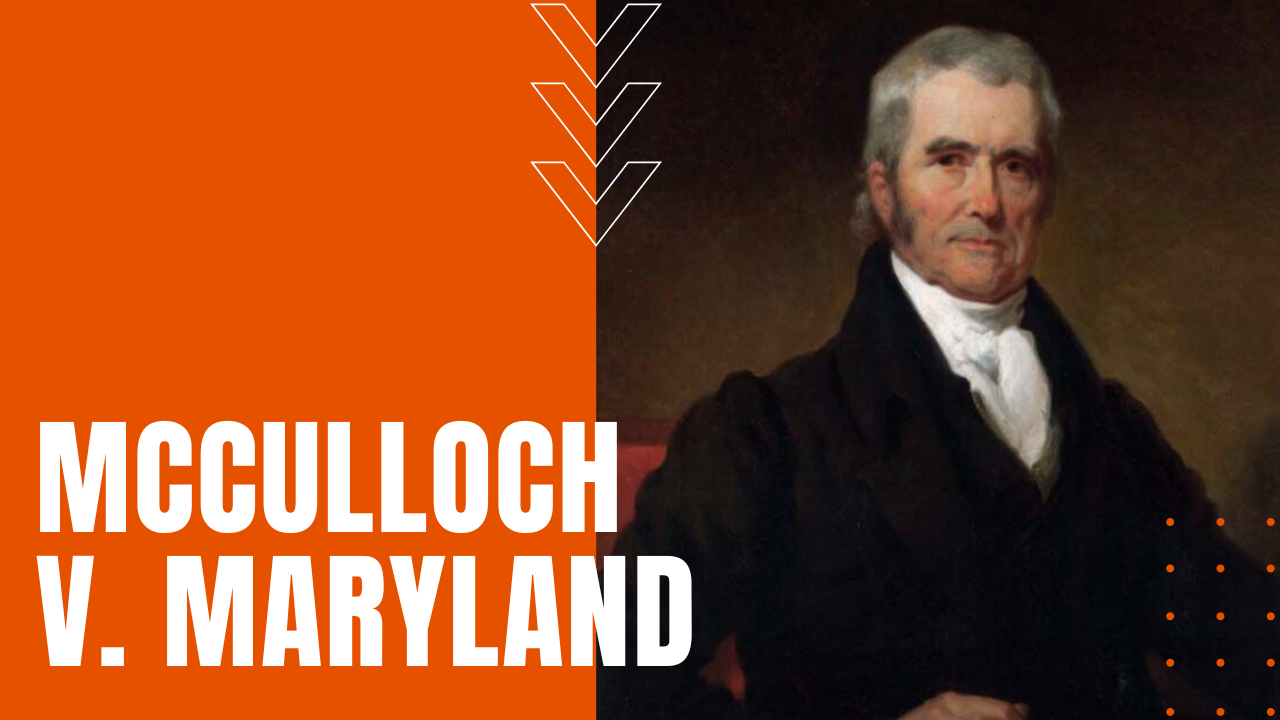McCulloch v. Maryland

In 1791, after Treasury Secretary Alexander Hamilton called for a strong central bank to stabilize a young nation’s economy, Hamilton’s proposal faced stiff opposition by Thomas Jefferson and other anti-federalist legislatures, who feared that a federally-controlled bank would undermine the stability of state banks.
First Federal Banks
Despite Jefferson’s objections, President George Washington signed the Bank Bill of 1791, which soon witnessed the opening of federal banks in Philadelphia and eight other large American cities. The bank’s charter would lapse in 1811, yet after federal debt rose precipitously during the War of 1812, Congress chartered the second Bank of the United States in 1816.
State Pushback
Two years later, after Maryland legislators imposed a stamp tax on currency issued by the second Bank of the U.S. in an attempt to limit the bank’s authority, when Baltimore branch cashier James W. McCulloch refused to pay the tax, the issue made its way through the American court system until it reached the Supreme Court by appeal. Presiding over the then seven-member Supreme Court was Chief Justice John Marshall, who heard arguments surrounding the case on February 22nd, 1819, in a courtroom in the basement of the U.S. Capitol.
Legal Fight Ensues
Representing Maryland was high-powered attorney Luther Martin, who had famously walked out of the Constitutional Convention of 1787 to voice his opposition to the creation of a strong central government, while statesmen and attorney Daniel Webster spoke on behalf of the bank. Citing the 10th Amendment, which states that any power that the Constitution hasn’t granted to the federal government or limited the states from using is either reserved for the states or the American people, Martin argued that the Constitution gave no authority to Congress regarding the creation of a bank, while Webster cited Article I, Section 8 of the Constitution, which granted Congress power “to make all laws which shall be necessary and proper,” which Webster argued was necessary and proper to levy and collect taxes, borrow money, pay for the military and regulate commerce.
Fears of Federal Overreach
Ultimately, the court favored McCulloch and the second Bank of the United States, while many constitutional scholars believe the Supreme Court’s ruling on McCulloch v. Maryland opened the flood gates for what some have labeled an “administrative state,” which as the nation grew in population and wealth, witnessed a steady rise in federal oversight regarding all aspects of American life, paving the way for Roosevelt’s New Deal reforms of the 1930s and the creation of the Social Security Administration, the passage of the Civil Rights Act of 1964 and the Patient Protection and Affordable Care Act of 2010, making McCulloch v. Maryland, a lasting big win for centralized government in America.
